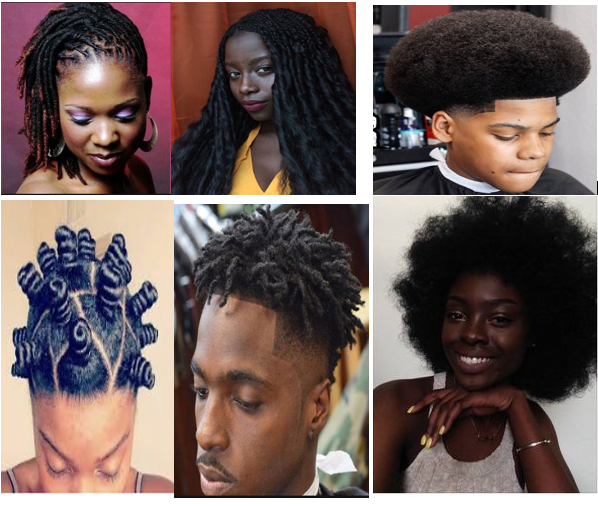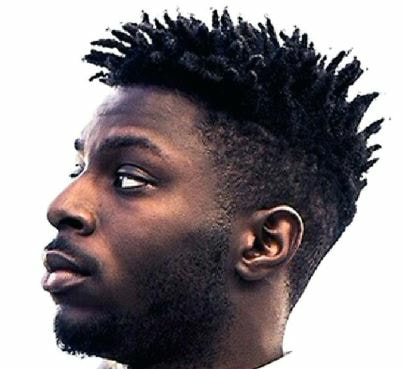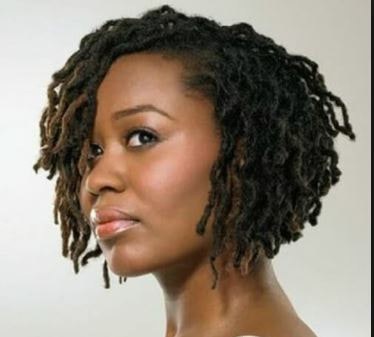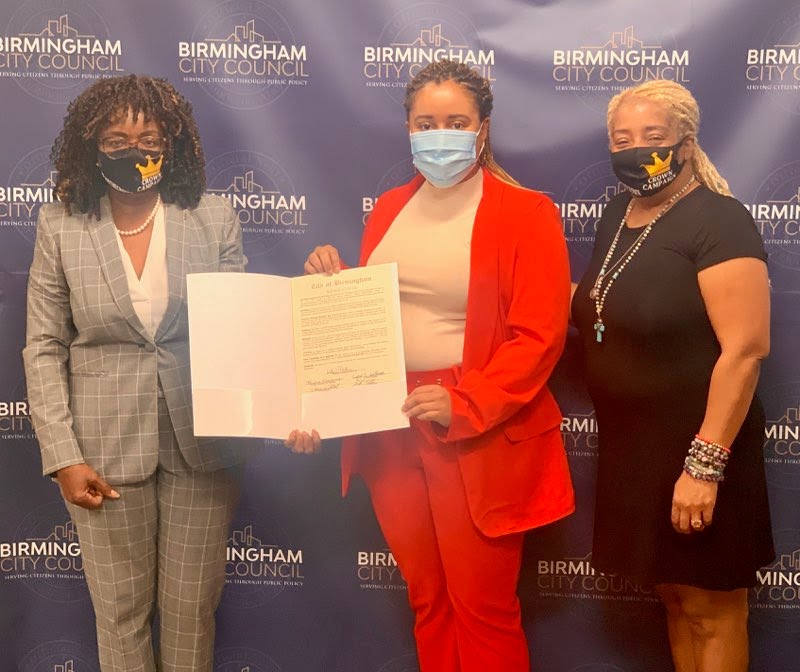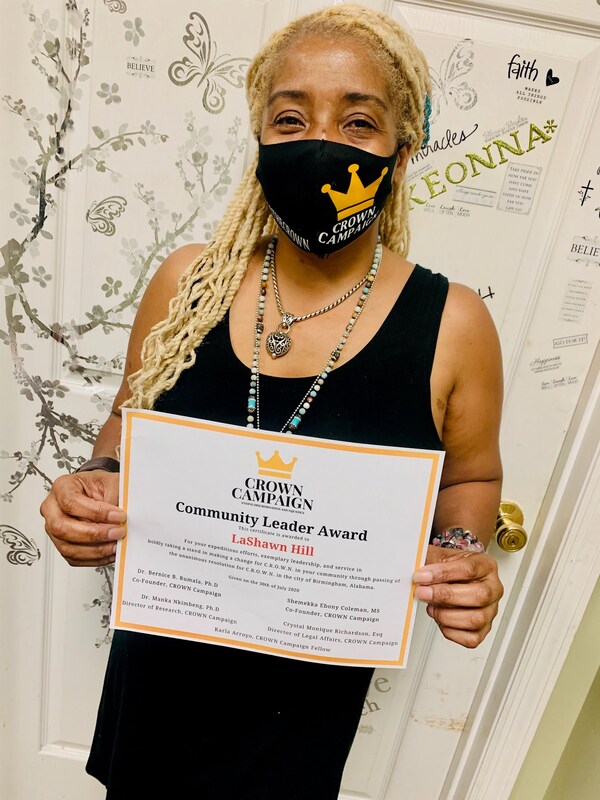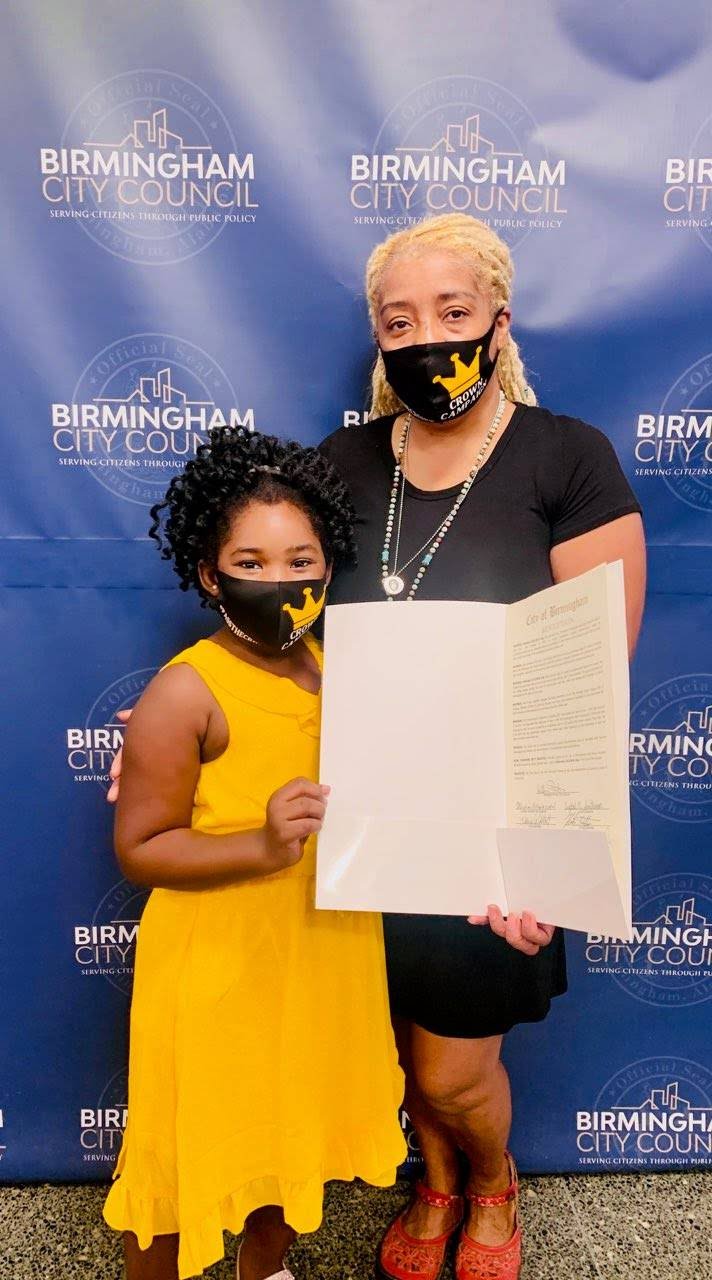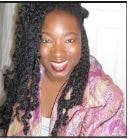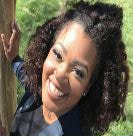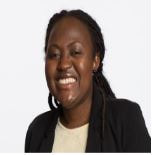Home About Advocacy DONATE
C.R.O.W.N. Collaboration AT A GLANCE
Five professionals, Dr. Bernice B. Rumala (Co-Founder), Shemekka Ebony, M.S. (Co-Founder), Dr. Manka Nkimbeng, MPH, RN (Director of research), MS. CRYSTAL MONIQUE RICHARDSON, ESQ. (director of legal affairs), AND MR. J.B. AFOH MANIN, ESQ. (Legal expert) all have had experiences with hair discrimination and discrimination of all forms. through a grassroots effort, they came together with a growing village around the globe to collaborate with the goal of educating and changing policies and practices as part of a community of solutions
current & Previous Events
|
|
|
|
Deeper than Hair Song - Addressing Systemic Racism
|
My Hair, My Crown, My Freedom - Short Animation Film
|
JOIN The CROWN Campaign on Social Media @CROWNCampaign IG, Facebook, & Twitter
Five professionals, Dr. Bernice B. Rumala Ph.D. (Co-Founder), Ms. Shemekka Ebony, M.S. (Co-Founder), Ms. Crystal Monique Richardson, Esq., Dr. Manka Nkimbeng, PhD , MPH, RN, and Mr. J.B. Afoh Manin, Esq., all have had experiences with hair discrimination and came together with the purpose of combating discrimination of all forms including hair discrimination.
Through advocacy for the CROWN Act (Creating a Respectful and Open World for Natural Hair) that has been signed into law, their goal is to educate and change policies and practices as part of a community of solutions both locally and globally. In the black community, hair and hairstyles have strong historical, political, cultural, social, and familial significance in terms of identity.
Such hairstyles include afros, braids, bantu knots, locs, African thread styles, twists, fades, and leaving hair in various forms of its natural state. Unfortunately, individuals have been discriminated against on the basis of the expression of this cultural identity and practice of natural hair/hairstyles. This has resulted in a number of inequities in activities of daily living such as lack of employment opportunities, discrimination in the workplace, discrimination in school settings, job loss, microaggressions and much more. In a number of case studies, individuals have been told to conform to the dominant culture for assimilation and upward mobility further promoting racist stereotypes.
#HAIRSTORY:
A tale of five professionals navigating hair discrimination
Dr. Bernice B. Rumala, Founding CEO of the Change Agent Firm, upon graduating from Columbia University, was informed in professional development workshops for interviews at different conferences of the most acceptable professional look standards for the workforce in terms of acceptance and also promotion. In summary, the guidelines were hair in sleek bun or worn straight down, and "nothing wild or unkempt". “You do not want to draw attention to your hair and distract from your excellent qualifications” was the message. So she understood the message, that her hair that grew out of her scalp in its natural state was considered "a distraction from her excellent credentials", "wild or unkempt" and “unacceptable”. She viewed her hair as her freedom but it was characterized by others as a source of professional barriers.
Ms. Shemekka Ebony, Founding Partner of I am Brilliant, mentions that since childhood, her ethnicity has always come into question because of her hair texture. She was often asked questions like “what’ you mixed with” or “do you have Indian (Native American) in your family”? Usually answering yes to the latter would dismiss further interrogation although she has less than 1% Native American in her family (according to Ancestry results).
Ms. Crystal Monique Richardson, a lawyer has had multiple experiences with hair discrimination in the workplace including being threatened with job insecurity based on her natural hair, being prevented from seeing clients, and also being informed during earlier years as a student not to reveal length and natural texture of hair but to pull neatly in a bun as part of professional decorum.
Dr. Manka Nkimbeng, a graduate of Johns Hopkins University and Nurse shares that her hair story changed after she migrated to the U.S. Her perception and the impacts of hair discrimination has grown with her 16 years of residency in the United States. As she become more acculturated to the U.S system and culture, she is growing to understand the full impacts of discrimination including realizing that certain hair styles and hair textures within her family are not acceptable in the community and media. Even worse is the financial and potential health implications of hair discrimination and racial discrimination broadly.
There is strong research evidence on the adverse effects of different forms of discrimination on health, well being, social justice, and equity. In February 2019, the New York City Human Rights Commission instituted a historical ban making it illegal to discriminate against individuals of Black/African descent based on natural hair/hairstyles. In July 2019, the state of California passed the CROWN ACT making it illegal to discriminate based on natural textured hair. Through this collaboration, this group of professionals are continuing to advocate and educate on equity, policy, health, well-being, community engagement, and law for national and global efforts to end discrimination of all forms.
Read Our Bios Here
Through advocacy for the CROWN Act (Creating a Respectful and Open World for Natural Hair) that has been signed into law, their goal is to educate and change policies and practices as part of a community of solutions both locally and globally. In the black community, hair and hairstyles have strong historical, political, cultural, social, and familial significance in terms of identity.
Such hairstyles include afros, braids, bantu knots, locs, African thread styles, twists, fades, and leaving hair in various forms of its natural state. Unfortunately, individuals have been discriminated against on the basis of the expression of this cultural identity and practice of natural hair/hairstyles. This has resulted in a number of inequities in activities of daily living such as lack of employment opportunities, discrimination in the workplace, discrimination in school settings, job loss, microaggressions and much more. In a number of case studies, individuals have been told to conform to the dominant culture for assimilation and upward mobility further promoting racist stereotypes.
#HAIRSTORY:
A tale of five professionals navigating hair discrimination
Dr. Bernice B. Rumala, Founding CEO of the Change Agent Firm, upon graduating from Columbia University, was informed in professional development workshops for interviews at different conferences of the most acceptable professional look standards for the workforce in terms of acceptance and also promotion. In summary, the guidelines were hair in sleek bun or worn straight down, and "nothing wild or unkempt". “You do not want to draw attention to your hair and distract from your excellent qualifications” was the message. So she understood the message, that her hair that grew out of her scalp in its natural state was considered "a distraction from her excellent credentials", "wild or unkempt" and “unacceptable”. She viewed her hair as her freedom but it was characterized by others as a source of professional barriers.
Ms. Shemekka Ebony, Founding Partner of I am Brilliant, mentions that since childhood, her ethnicity has always come into question because of her hair texture. She was often asked questions like “what’ you mixed with” or “do you have Indian (Native American) in your family”? Usually answering yes to the latter would dismiss further interrogation although she has less than 1% Native American in her family (according to Ancestry results).
Ms. Crystal Monique Richardson, a lawyer has had multiple experiences with hair discrimination in the workplace including being threatened with job insecurity based on her natural hair, being prevented from seeing clients, and also being informed during earlier years as a student not to reveal length and natural texture of hair but to pull neatly in a bun as part of professional decorum.
Dr. Manka Nkimbeng, a graduate of Johns Hopkins University and Nurse shares that her hair story changed after she migrated to the U.S. Her perception and the impacts of hair discrimination has grown with her 16 years of residency in the United States. As she become more acculturated to the U.S system and culture, she is growing to understand the full impacts of discrimination including realizing that certain hair styles and hair textures within her family are not acceptable in the community and media. Even worse is the financial and potential health implications of hair discrimination and racial discrimination broadly.
There is strong research evidence on the adverse effects of different forms of discrimination on health, well being, social justice, and equity. In February 2019, the New York City Human Rights Commission instituted a historical ban making it illegal to discriminate against individuals of Black/African descent based on natural hair/hairstyles. In July 2019, the state of California passed the CROWN ACT making it illegal to discriminate based on natural textured hair. Through this collaboration, this group of professionals are continuing to advocate and educate on equity, policy, health, well-being, community engagement, and law for national and global efforts to end discrimination of all forms.
Read Our Bios Here
OUR AimAddress Discrimination & Injustices One Community Connection At A Time |
First Let'sEducate
Panel and Workshop Topics:
Race based hair discrimination, health equity, and systems change Anti-Racism Law: Black Hair, Human Rights, and Health Equity I Am Not My Hair: An exploration of current Public and Private sector grooming policies with inequitable practices towards Black Women’s Health & Wellbeing Not Above the Law: Protection for Black Hair Racial Discrimination, regardless of Form Impacts Health Outcomes across the Lifespan A Lawyer’s Point of View: Legal overview, Case Studies, and Experiences with Hair Discrimination |
Now let's WORK onPolicy
February 2019 New York City Human Rights Commission Banned Hair Discrimination
April 2019 California Senate approved CROWN Act See further updates on states where the C.R.O.W.N. act has passed here: https://www.thecrownact.com/about |
Now The ResultsChange
July 2019 California CROWN Act Signed July 2019 New York CROWN Act Signed See further updates on where the CROWN act has passed here: https://www.thecrownact.com/about |
